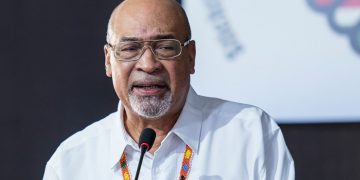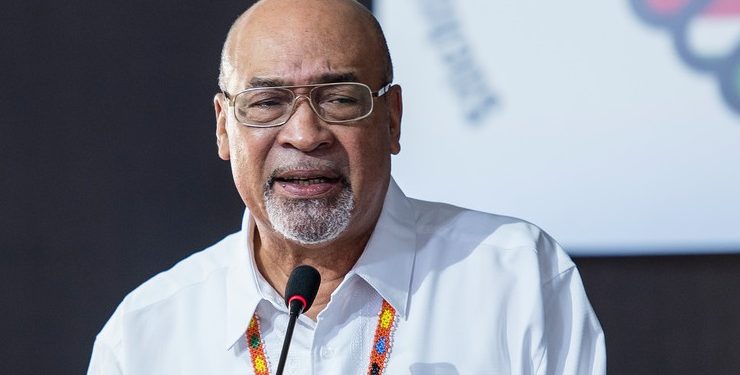PARAMARIBO, Suriname– Suriname’s President Desi Bouterse declared himself a victim of political game as he returned home yesterday, two days after a court sentenced him to 20 years in prison for planning and ordering the execution of 15 political opponents in 1982 when he was the country’s military leader.
The 74-year-old Bouterse, who was in China on official business when the decision was handed down by the military court last Friday, was greeted by more than 1,500 supporters of his National Democratic Party (NDP) when he returned to the Dutch-speaking Caribbean Community (CARICOM) member state.
Declaring his innocence, the president is also a convicted drug trafficker, said “it was clear that the verdict was political”.
“The political game is played openly, so it was clear what was going to happen. We will stay within the law and regulations. Politics needs to be answered with politics,” he said at a press conference.
Bouterse, who insisted that he is focused on the general elections in May next year when he will try to secure a third consecutive term as president, said he would meet with his advisers and Members of Parliament on the way forward.
Defence attorney Irvin Kanhai has already indicated he would file an appeal the ruling.
Bouterse has two weeks to challenge the court decision that was handed down after a lengthy trial that started in 2007 but suffered several setbacks, including efforts by Bouterse to halt the legal proceedings and push through an amnesty law passed by the National Assembly in 2012 that was later invalidated by a court and ruled unconstitutional.
The court found that Bouterse, who became de facto after playing a key role in a 1980 coup d’etat against Prime Minister Henck Arron, had overseen an operation which involved soldiers under his command kidnapping 16 government critics – two military officers and 14 civilians, including lawyers, journalists and university professors. Except for a union leader who later testified against President Bouterse, the detainees were executed at Fort Zeelandia, the colonial fortress in the capital, Paramaribo.
The court said Bouterse had played a crucial role in the killings, carefully preparing the ground for executions he had the power to prevent.
But Bouterse claimed the victims had been held for plotting a counter-coup with the help of the United States’ Central Intelligence Agency (CIA) and had been shot while trying to escape.


















